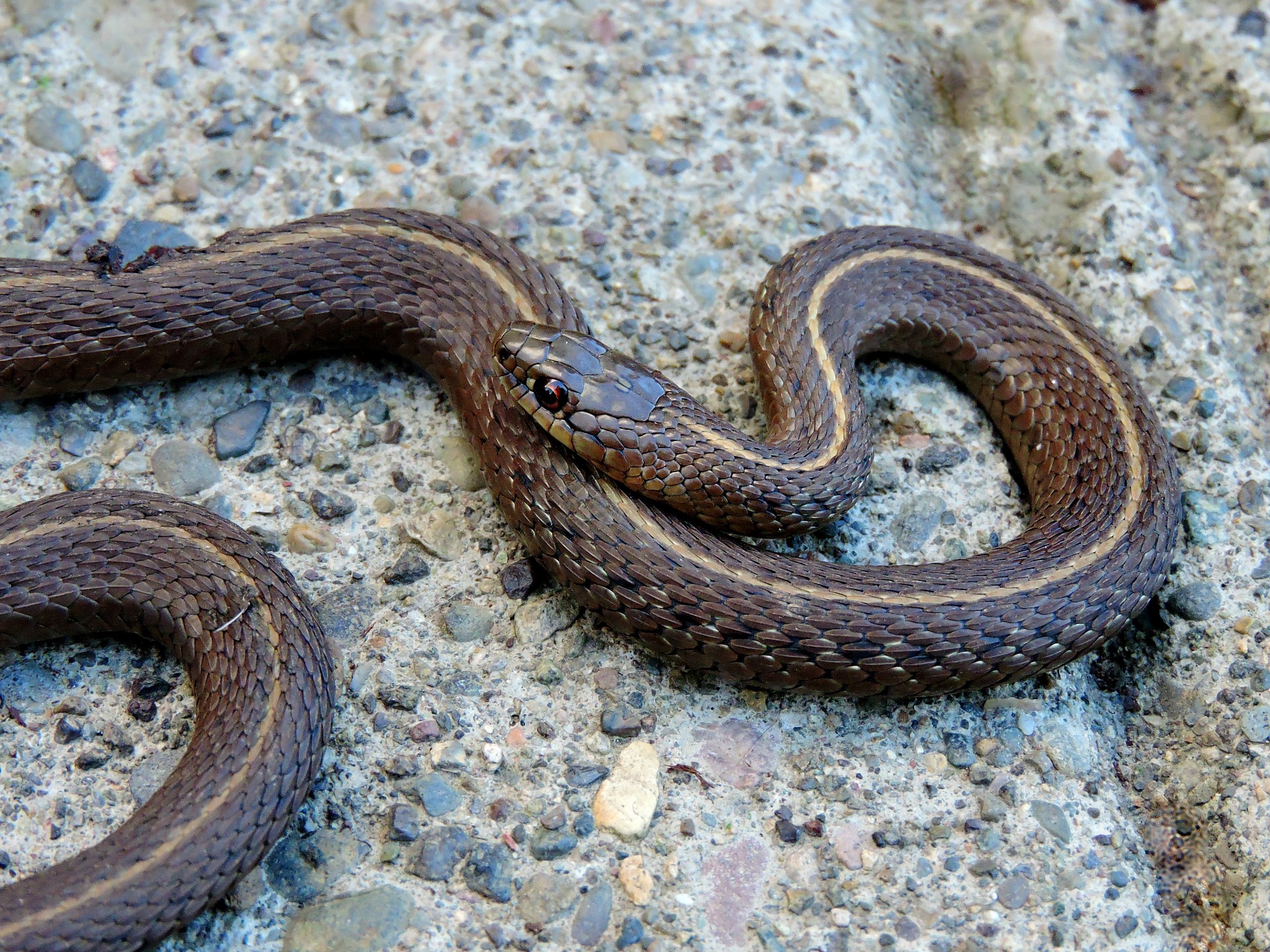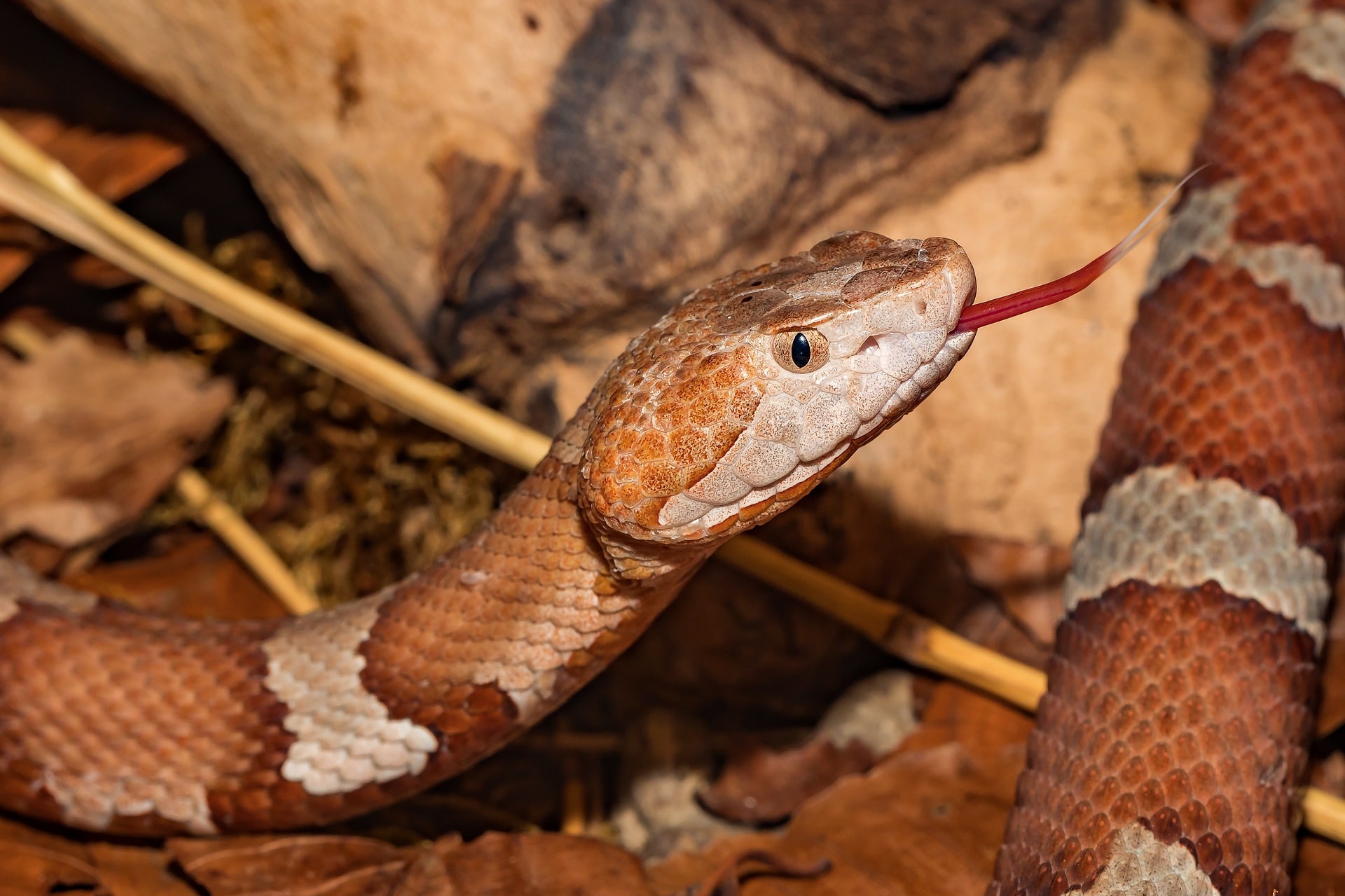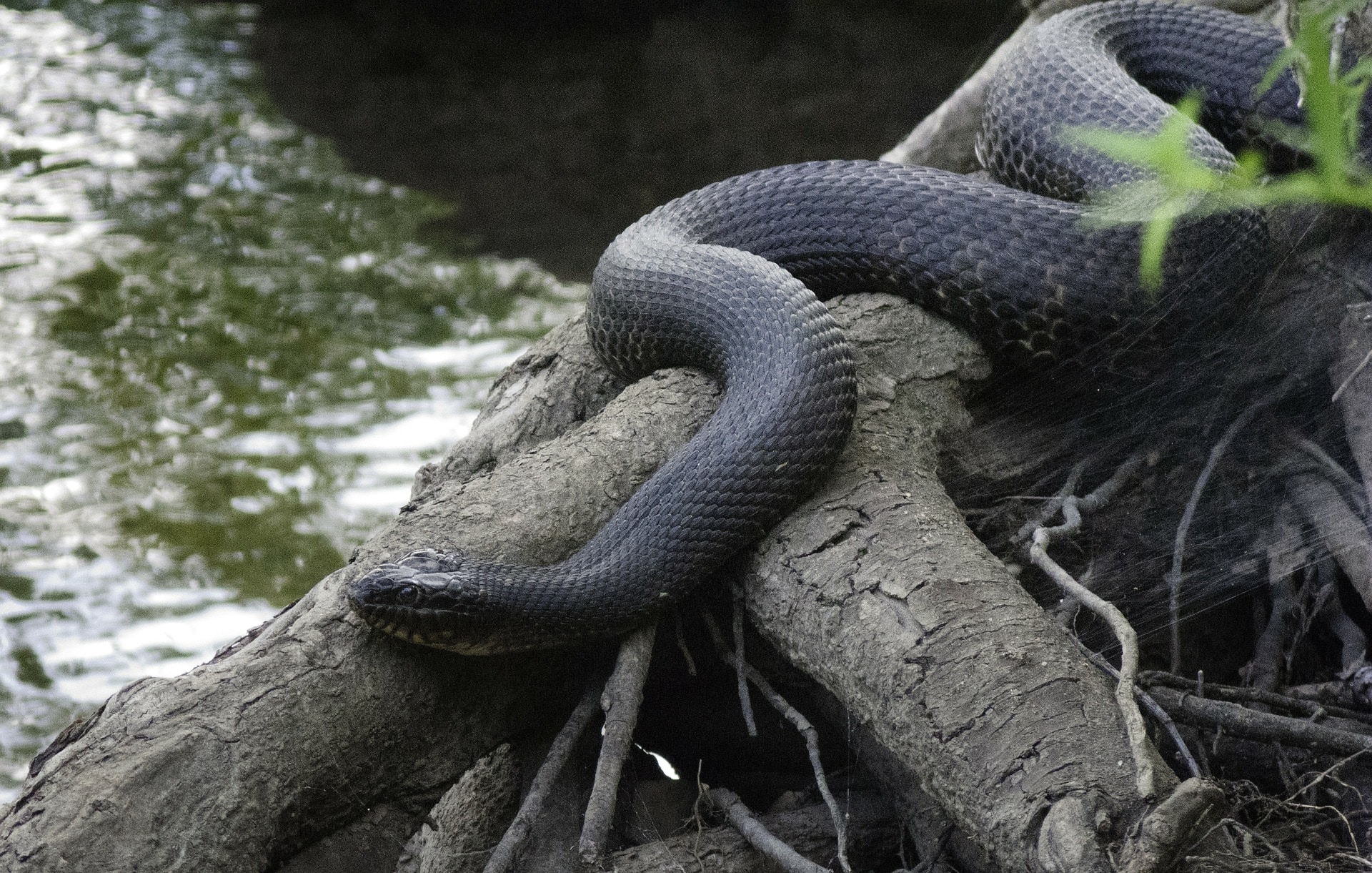Most homeowners are tempted to get rid of snakes in their yards by any means possible. However, it’s important to note that some snake species in Pennsylvania are endangered, and it’s against state regulation to kill any snakes.
Nevertheless, it may be hard for most homeowners to ignore spotting one of these menacing-looking reptiles. In cases where you feel like you can’t deal with a snake on your own, it’s best to reach out to a professional, whether it’s your local animal control expert or pest control company.
For homeowners looking to get rid of snakes in their yards on their own, this guide will tell you everything you need to know about dealing with snakes in Pennsylvania.
How Dangerous Are Snakes In Pennsylvania?
The most common reason people kill snakes is because there is a misconception about how dangerous snakes truly are. Of the twenty-two snake species found in Pennsylvania, only three are venomous:
- Timber rattlesnake
- Eastern massasauga
- Copperhead
All three species can be identified by their cat-like pupils, which are shaped like slits and not rounded like other snakes.
Fortunately, venomous snakebites are incredibly rare and death resulting from a bite is even rarer.
For the most part, snakes in Pennsylvania are incredibly tame and beneficial to their local ecosystems. Even venomous snakes are not aggressive and will not bite unless provoked through handling or intimidation.
Common Snakes in PA
There are over 3,000 species of snakes around the world, but there are a few prominent types that tend to live in northeastern Pennsylvania. While these species can be spotted in other areas, the kind you find will likely depend on your surroundings.
If you are near a body of water, the forest, or in a dryer area, the type of snake you may encounter will be different. While it is possible to be bitten by snakes, it should be noted that snakes are not poisonous – they are venomous. This means they can only transfer venom through a bite. To get a better idea of what you may be dealing with, here are the most common reptiles:
- Garter: Often called the garden snake. Their most notable feature comes in yellow lines on their bodies. These snakes are mildly venomous, but they are not harmful to humans. They tend to live in grasslands and can be gray, red, black, or brown.
- Copperhead: Semi-aquatic, venomous snakes. They live in marshes, wetlands, or similar areas. They are typically copper-colored, with reddish-brown bodies. If bitten, you will need an anti-venom.
- Rattle Snakes: Known for their rattling tale. These venomous snakes have interlocking scales and will rattle their tail to you as a warning. They are generally light brown with dark brown spots.
- Water Snake: Non-venomous snakes with aggressive behavior. Their typical habitat is near water. They can grow to about five feet long and have a rounder head than other snake species.
While most snakes would rather stay away from humans altogether, they will likely be defensive if they encounter us. If you have a snake problem or often find snakes in your yard, approach the situation cautiously. Snake bites are avoidable if you do not engage.
Why Do Snakes Infest Yards?
Snakes enter yards in search of the same things every creature needs to survive: food, shelter, and water.
Let’s break down each of these three things to discover what exactly attracts snakes to your yard:
- Food: Snakes are carnivores and typically snack on rodents (mice and rats), amphibians (frogs and toads), and other grubs, like earthworms and slugs.
- Water: Large sources of standing water, such as rivers, streams, lakes, ponds, and marshes, will attract snakes.
- Shelter: Snakes tend to reside in areas with good coverage from grass, weeds, and plants. Therefore, an overgrown or unkempt yard will be a hiding place for snakes and other pests.
Eliminating or managing these three attractants will make snakes more likely to avoid your yard altogether.
How To Get Rid of Snakes in Your Yard
The last thing you want is a nasty bite from a venomous visitor. If you want to avoid an encounter, here are nine things you could do to keep snakes away.
1. Keep Grass Trimmed and Clean
Snakes seek warm, moist areas with a food source. They also look for areas abundant in rodents. These reptiles like places to hide, and an overgrown yard is just the perfect place. An excellent way to discourage snake populations is by keeping your grass cut. Additionally, if you routinely trim your lawn, you won’t run into any unexpected dangers while doing so.
2. Contain your Overgrowth and Care for your Yard
In addition to hiding in tall grass, snakes will hide in yard debris. Tall grasses and shrubs are two ideal hiding spots for these reptiles. They also tend to hide away in storage sheds, wood piles, or fallen branches and limbs. Proceed with caution when removing and clearing your property to avoid any snake bites.
3. Know Where They Hide
Understanding where snakes hide is fundamental to getting rid of snakes on your property. Snakes will often cozy up near heat or water sources. These reptiles are often fond of small places, like boxes, and can be found near or behind appliances. Other species like to find high and out-of-reach areas, so be wary of any ledges. You can be ready for them if you know where to find them.
4. Eliminate Moisture
Snakes are on the lookout for a water source. They love cool, damp environments. Water is a draw to many different pests. To keep them all away, remove any excess water you may have on your property. Take care of puddles, blocked rain gutters, or any leaking pipes you may have. Treat pools throughout the warm months to avoid bacteria buildup and amphibians that might attract snakes.
5. Use Mulch
Snakes aren’t fans of sharp materials. Therefore, applying mulch around your house is an excellent way to keep them away from your home and out of your yard. Use rick chips, crushed-up pine cones, or any thick, chopped wood for coverage.
6. Destroy the Food Source
Another easy way to keep snakes away is by limiting their food source. Snakes feed on rats, mice, and other critters. If they have a smorgasbord, they aren’t going to leave anytime soon. A snake or two can help you keep rodents away, but they must be dealt with when they become a nuisance. Therefore, getting rid of mice will, in turn, get rid of snakes.
7. Seal Any Possible Entryways
If the goal is to keep snakes out, limit their possible access points. Check your home for cracks and crevices. Check your drains and vents, and routinely inspect crawl spaces for openings. Seal up any entryways with caulk, expandable foam, or weather stripping. Cover any openings that cannot be closed with a fitted screen. Close the holes so neither reptile, rodent, nor insect can sneak inside.
8. Try Repellents
If snakes are a recurring problem, there are non-toxic repellents you can spray that are safe for use near children and pets. You can also use oil scents like cinnamon, clove, oil, and eugenol. These can help keep snakes away. Additionally, you can plant marigolds, garlic, or lemongrass. Snakes are deterred by these smells. These can also help keep mosquitoes away as a bonus!
9. Consider Exclusion
If you do find a snake in your home, it probably doesn’t want to be there any more than you do. Since they are essential to the ecosystem and don’t mean us any harm – consider calling a professional service to remove the snake. Most are looking to either hibernate or hide away.
They are not a very common pest and will likely leave you alone. However, since there are over 3000 species, it’s difficult to tell whether your snake is venomous. Rather than risk your safety or your family, consider calling a professional if you find a snake on your property and cannot deter it.
Dealing with a Snake Problem
Snakes are rarely an issue. Most want to be left alone and only look for a place to live. If you want to get rid of snakes from your yard and protect your family, consider some of these tips to keep snakes out.
Be vigilant and monitor the perimeter of your property, keep it clean, and try repellents. If you should find a snake, contact a pest control professional to have it removed for your safety. Be cautious and stay safe.
FAQs
Can I use mothballs to repel snakes?
Mothballs are not recommended for repelling snakes. While they might have some repellent effect on certain pests, they are not effective against snakes. Additionally, mothballs contain toxic chemicals that can be harmful to humans and pets if ingested or inhaled. It’s best to use safer and more effective snake-repellent methods.
How can I tell if a snake is venomous?
Identifying venomous snakes can be challenging, but there are some general characteristics to look out for. Venomous snakes often have triangular-shaped heads, slit-like pupils, and heat-sensing pits between their eyes and nostrils. Additionally, venomous snakes in certain regions may have specific color patterns or markings. When in doubt, it’s best to assume that any snake could be venomous and take appropriate precautions.
Will keeping a cat or dog help deter snakes?
While cats and dogs may occasionally chase or harass snakes, they are not reliable deterrents against snake activity. Some pets may even attempt to interact with snakes, putting themselves at risk of being bitten. It’s important to take proactive measures to snake-proof your property rather than relying solely on pets for snake control.






























